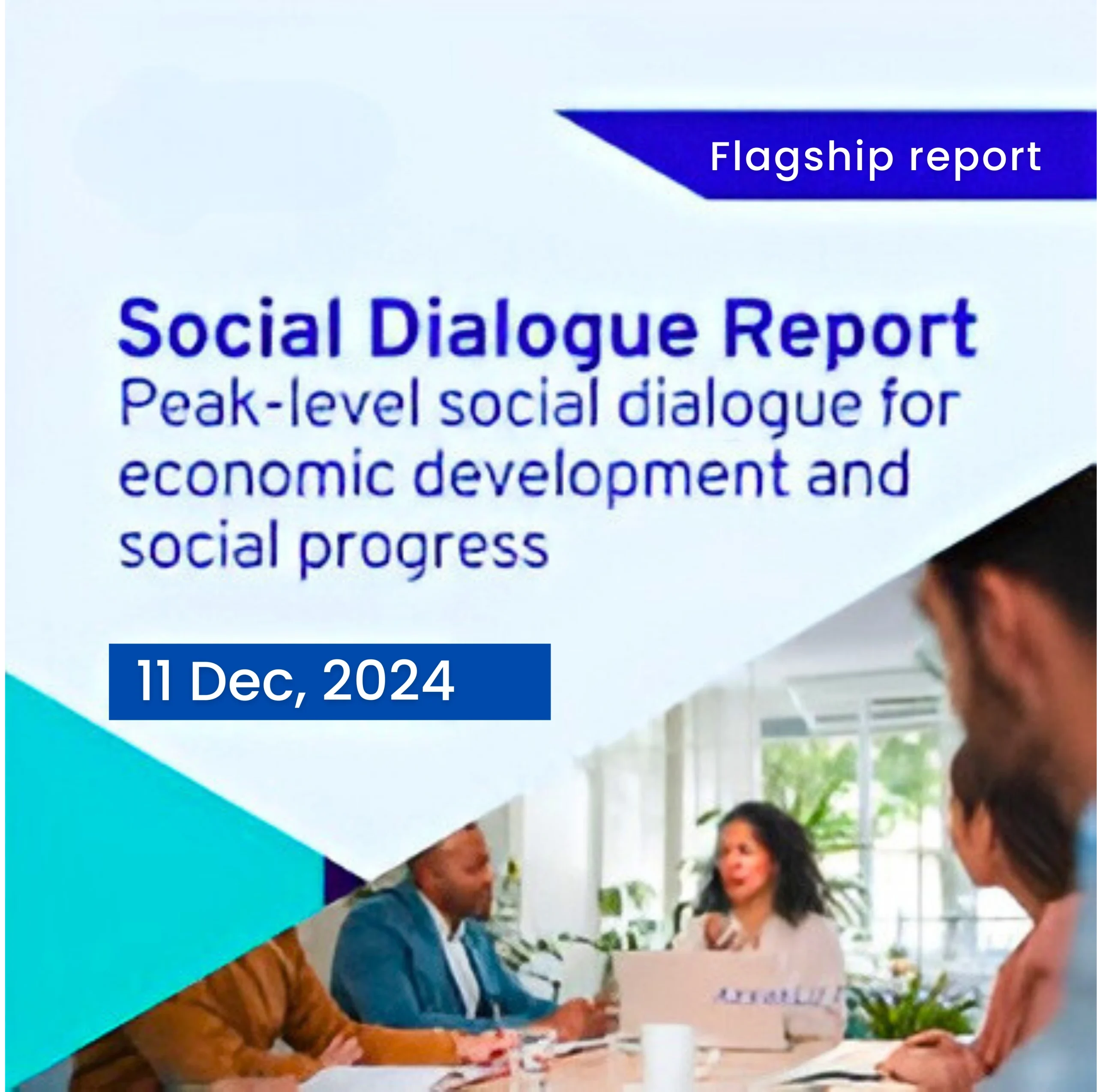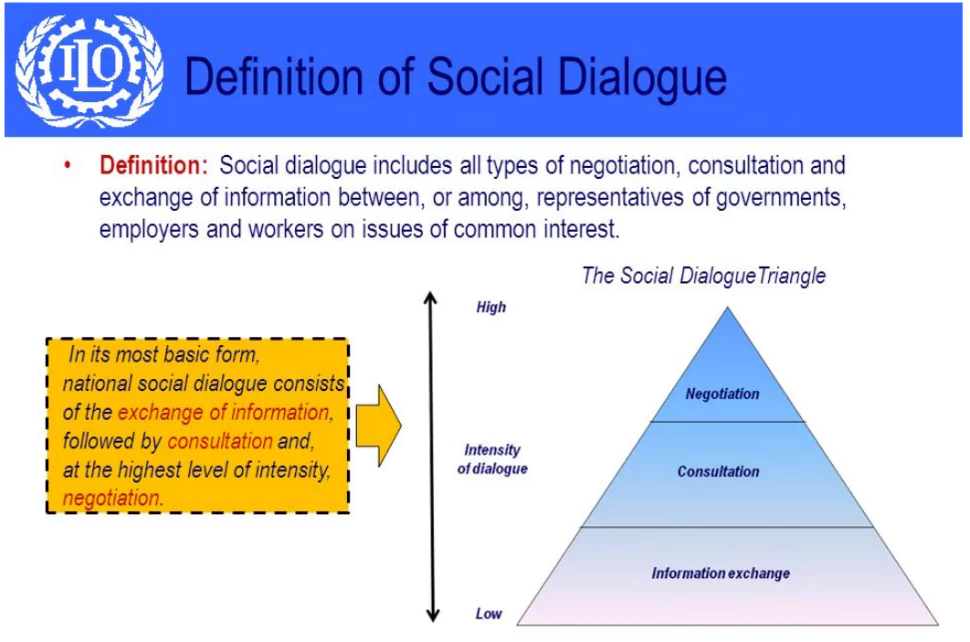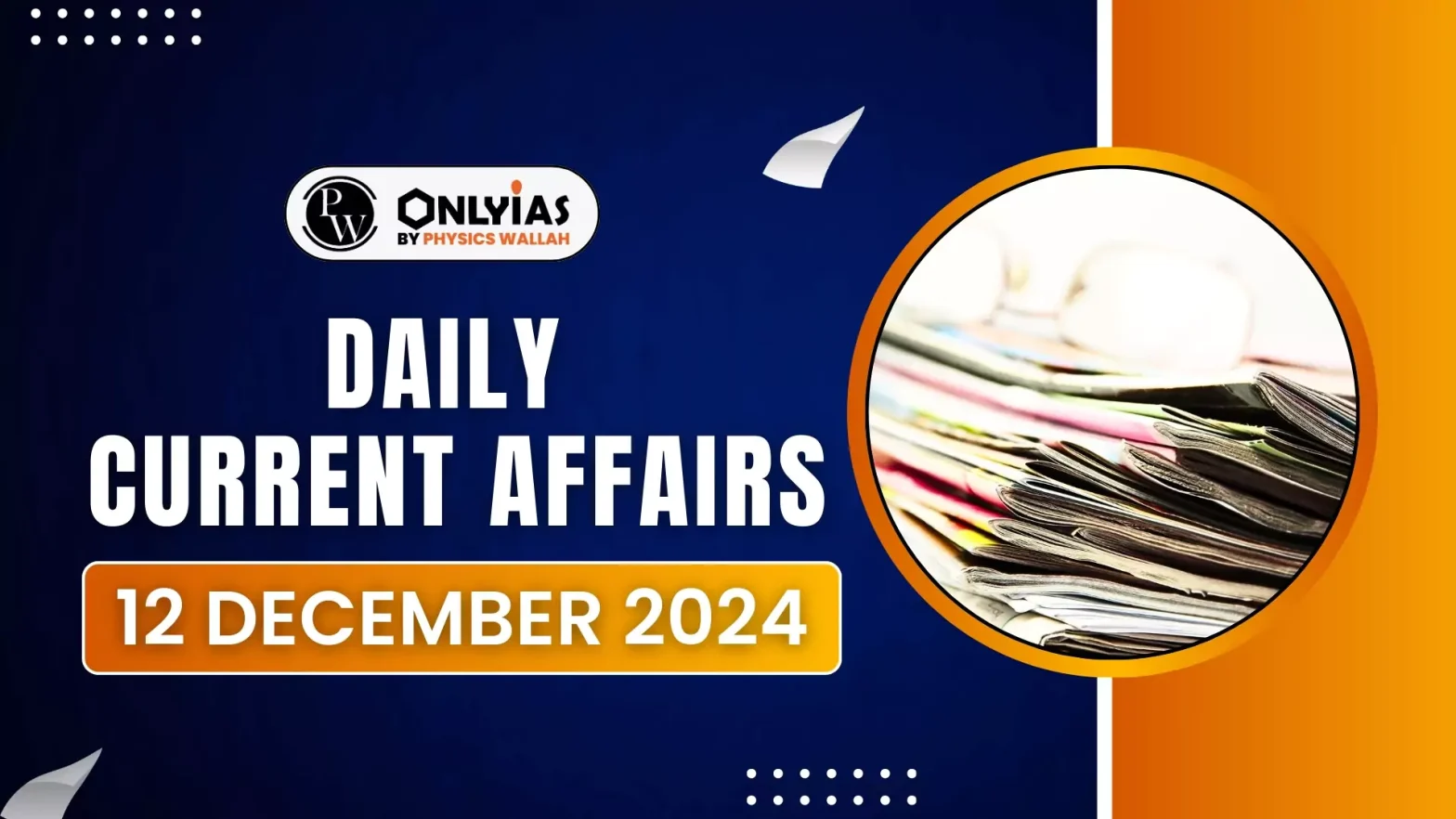Recently, The Social Dialogue Report of the International Labour Organisation (ILO), released in Geneva.
About Social Dialogue report

- The Social Dialogue Report evaluates the effectiveness of social dialogue mechanisms globally.
- It identifies best practices and challenges while offering actionable recommendations to improve the system.
- Purpose of the Report
- Assessment:
- Analyzes the state of social dialogue across various countries.
- Highlights success stories and identifies areas needing improvement.
- Recommendations:
- Suggests ways for governments, employers, and workers’ organizations to strengthen social dialogue mechanisms.
 Significance of the Report
Significance of the Report
- Highlights the critical role of social dialogue in achieving:
- Economic growth.
- Social progress.
- Inclusive development.
- This report underscores the need for collaboration between governments, employers, and workers to build fairer and more equitable workplaces worldwide.
- Benefits of Social Dialogue
- Economic and Social Progress: Enables countries to pursue economic development alongside social progress.
- Inclusive Transitions: Ensures fair and inclusive low-carbon and digital transitions.
Enroll now for UPSC Online Course
Highlights of the Social Dialogue Report by ILO
Key Recommendations
- Upholding Workers’ Rights:
- Governments should ensure fundamental principles and rights at work, focusing on:
- Freedom of association.
- Recognition of collective bargaining rights.
- Strengthening Social Partners:
- Equip labour administrations and social partners with resources and technical expertise to actively participate in peak-level social dialogue (PLSD).
- Inclusivity and Evaluation:
- Expand national social dialogue institutions (NSDIs) to include under-represented groups.
- Conduct regular, evidence-based assessments of PLSD’s role in socio-economic decision-making.
About PLSD
- PLSD refers to peak-level social dialogue.
- It is a set of institutions set of institutions and processes where governments, employers’ organizations, and workers’ organizations come together to negotiate, consult, and exchange information on labor, economic, and social matters at national or sectoral levels
- Types of processes:
- Bipartite: Between employers and workers for collective agreements.
- Tripartite: Includes government representatives for broader consultation.
|
Key Findings
- Decline in Compliance:
- Between 2015 and 2022, compliance with freedom of association and collective bargaining rights deteriorated by 7%.
- The decline stems from violations of civil liberties and bargaining rights of workers, employers, and their representative organisations.
- Global Transformation Challenges:
- Social dialogue is essential for managing transitions in:
-
- Low-carbon economies.
- Digital advancements.
Check Out UPSC CSE Books From PW Store
International Labour Organisation (ILO)
- The International Labour Organization (ILO) is a United Nations agency that promotes social and economic justice by setting international labour standards.
- Established: In October 1919 under the League of Nations, it is one of the oldest specialized UN agencies.
- Headquarters: Geneva, Switzerland
- India is a founder member of the International Labour Organization.
- Number of Member states: 187
- ILO’s Four Key Objectives
-
- Promote Fundamental Labour Rights : Ensure that core labour standards and basic rights, such as freedom from forced labour and workplace discrimination, are respected globally.
- Expand Opportunities for Decent Work : Help both men and women access jobs that provide fair wages, safe conditions, and respect for workers’ dignity.
- Enhance Social Protection : Work towards better social security and protection systems to benefit all individuals, especially vulnerable groups.
- Strengthen Dialogue Among Stakeholders : Foster cooperation and meaningful discussions between governments, employers, and workers to improve labour policies and practices.
|
![]() 12 Dec 2024
12 Dec 2024


 Significance of the Report
Significance of the Report